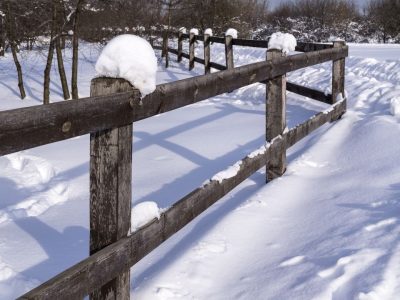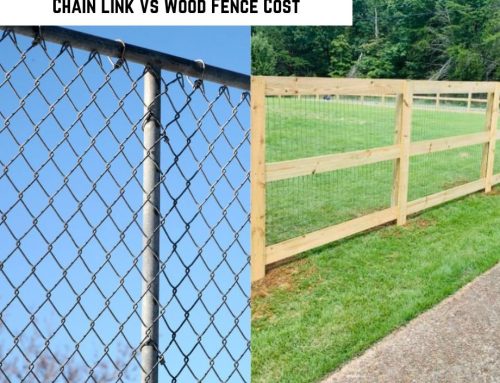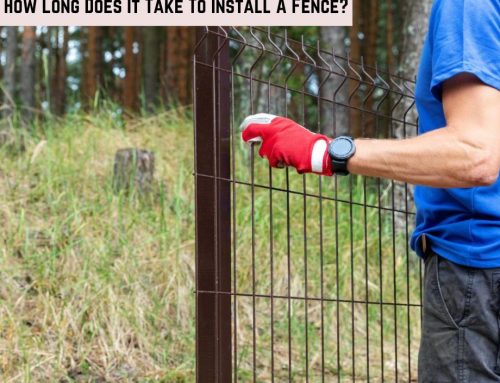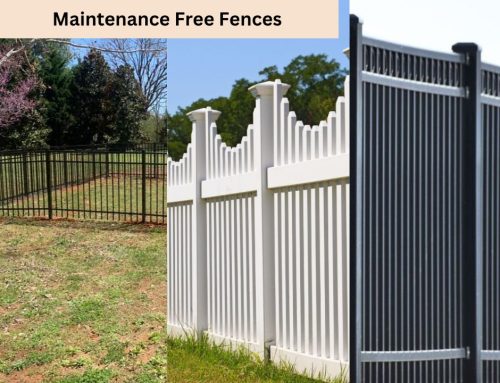Can You Install Fence In Winter?
Yes, you can install a fence in winter. Many homeowners might think that frigid temperatures and frosty ground would make fence installation impossible, but that’s not true. But Winter fence installation comes with its own set of challenges and considerations.
In this article, I’ll explore the ins and outs of installing a fence during the winter months, providing you with valuable insights to ensure a successful project. Whether you’re rushing to enhance your property’s security, privacy, or aesthetics or simply want to get a head start on your spring projects, read on to discover the secrets of winter fence installation.
Why Winter is a Good Time of Year to Install a Fence?
Winter is a good season for fence installation. You get privacy, easy landscaping, and swift work. Your outdoor plans won’t be disrupted. Plus, your fence will be ready by spring.
A Privacy Fence Provides Seclusion During Dormant Landscaping
Winter is a time when most outdoor greenery goes into dormancy. With trees shedding their leaves and plants entering a rest period, your yard may not look as lush as it does during the warmer months.
Installing a privacy fence during this season offers a practical advantage – it provides you with immediate seclusion. Even though your landscaping may appear bare, you can enjoy privacy from neighbors and passersby.
Winter Simplifies Landscaping
One of the challenges of installing a fence is navigating around existing landscaping. In the winter, many landscaping features are less active or even dormant, making it easier to access areas where you want to install a fence. Frozen ground can simplify digging fence post holes, and the absence of leaves and foliage simplifies installation.
Professionals Ensure a Swift Installation
Professional fence contractors are often less busy during the winter months. This means they can dedicate more time and attention to your project. With fewer projects on their plate, they can ensure a swift and efficient installation process. You won’t have to wait as long to have your new fence in place, and it will be done with precision.
Won’t Disrupt Outdoor Activities
Since winter is a season when outdoor activities are less frequent, fence installation is unlikely to disrupt your enjoyment of your yard. Unlike spring or summer, when outdoor gatherings and playtime are common, winter is a quieter time for outdoor living. This means that the noise and activity associated with fence installation won’t interfere with your daily routines.
Your New Fence Will Be Spring-Ready
By installing a fence in the winter, you’ll have it ready and waiting for the arrival of spring. When the weather warms up, your property will be enhanced with a beautiful and functional fence. This proactive approach allows you to enjoy your outdoor space to the fullest once the spring season arrives.

Pros & Cons of Fence in Winter
| Pros | Cons |
| Immediate Privacy | Weather Dependency (Cold and wet conditions) |
| Simplified Landscaping | Frozen Ground (Challenging to dig post holes) |
| Swift Professional Installation | |
| Minimal Disruption | |
| Spring-Ready |
Here are the details of Pros and cons of Fence in Winter –
Pros of Installing a Fence in Winter
- Immediate Privacy: Winter’s dormant landscaping means your yard is less lush, but installing a fence provides instant privacy from neighbors and passersby.
- Simplified Landscaping: With less active landscaping features and frozen ground, fence installation becomes more accessible and straightforward.
- Swift Professional Installation: Winter is a less busy season for fence contractors, ensuring a quicker and more focused installation process.
- Minimal Disruption: Winter is a quieter time for outdoor activities, reducing the inconvenience of construction noise and activity.
- Spring-Ready: By installing a fence in winter, your property is prepared for spring, allowing you to enjoy your outdoor space to the fullest when the weather warms up.
Cons of Installing a Fence in Winter
- Weather Dependency: Cold and wet conditions can pose challenges for fence installation, potentially delaying the project.
- Frozen Ground: Digging fence post holes in frozen ground can be more challenging and time-consuming.
Despite these drawbacks, the benefits of installing a fence in winter often outweigh the cons, making it a viable option for homeowners seeking privacy, security, and improved property aesthetics.
Tips for Successful Winter Fence Installation
Thinking about a winter fence installation? Good choice. But success depends on planning and execution. Here are tips to make sure it goes smoothly.
1. Plan Ahead: Start the planning process well in advance. This includes obtaining necessary permits, ordering materials, and scheduling professional help. Winter installation dates can be limited, so securing everything ahead of time is crucial.
2. Weather Monitoring: Keep a close eye on weather forecasts. Choose installation days when the weather is most favorable. Avoid days with extreme cold, heavy snow, or freezing rain, as these conditions can hinder the process.
3. Ground Preparation: If the ground is frozen, it can be challenging to dig post holes. Consider using ground-thawing methods, like using heated blankets or thawing machines, to soften the ground. This will make it easier to dig holes for fence posts.
4. Proper Attire: Dress appropriately for the cold weather. Wear layers, insulated gloves, and warm boots. Staying warm and comfortable during the installation process is essential for efficiency and safety.
5. Professional Help: Winter fence installation can be more complex due to weather-related challenges. Hiring experienced fence contractors who are familiar with winter installations is highly recommended. They have the expertise and tools needed to handle the unique conditions.
6. Quality Materials: Invest in high-quality fencing materials that are designed to withstand cold temperatures and adverse weather conditions. Ensure that your chosen materials are suitable for the winter climate in your area.
7. Timely Completion: Work efficiently to complete the installation as quickly as possible. Minimize exposure to winter elements by having a clear plan and a skilled team on hand.
8. Routine Maintenance: After installation, perform regular maintenance to address any wear and tear caused by winter weather. Check for loose components, make necessary repairs, and keep the fence in top condition.
By following these tips, you can successfully install a fence during the winter months, enhancing the privacy, security, and aesthetics of your property.
Final Thoughts
Installing a fence in winter offers key benefits. You gain immediate privacy and easier landscaping. Professionals can focus more on your project, leading to quick and precise work.
Planning and the right choices ensure success. Despite some weather-related challenges, the pros outweigh the cons. Your fence will be ready for spring, letting you enjoy your outdoor space to the fullest.





